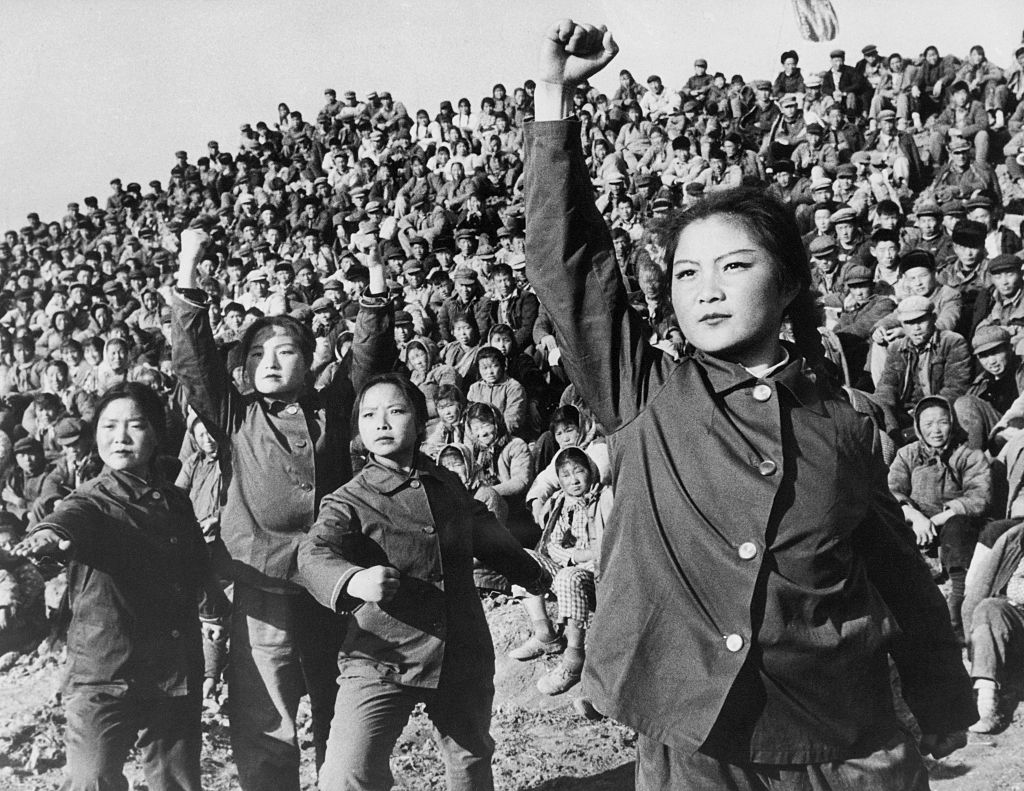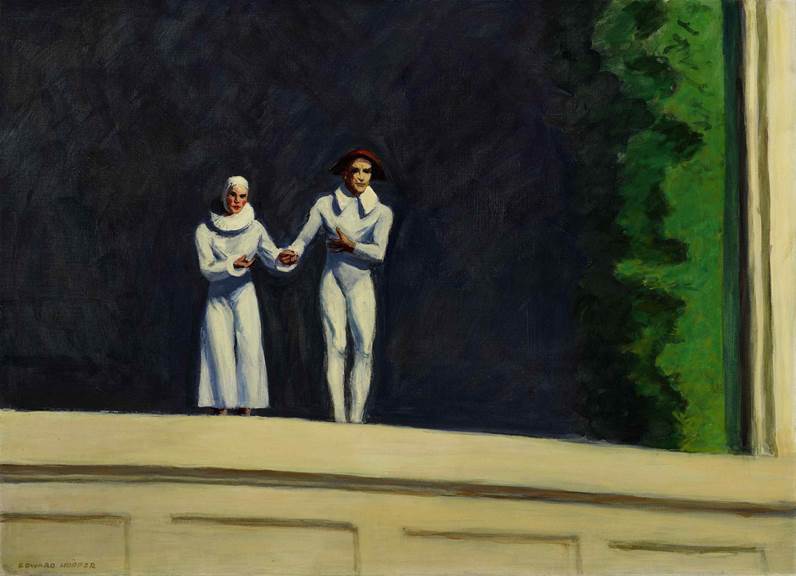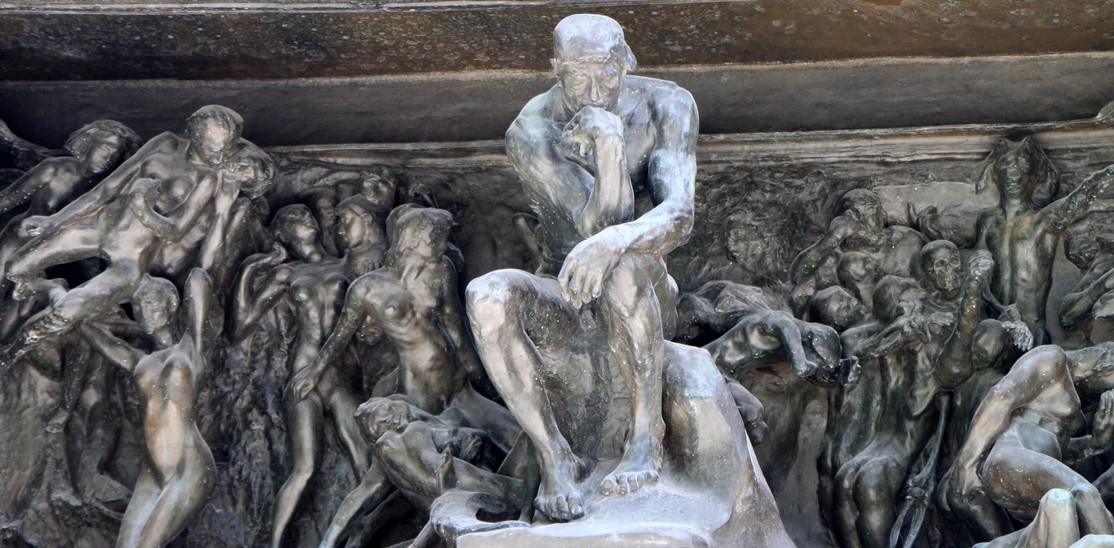This isn’t a proletarian revolution. This is a generational fight within our ruling elite class.
The People’s Republic of Campus

Maoist self-education comes to America.
As a teenager, I saw old-stone American university buildings on TV, and was enthralled by their dignified appearance. Later, I came across a book in my hometown that explained that the American university was a special place, unlike its Chinese counterpart, as devoted to the cultivation of the enduring longings of the human soul. To assist in man’s hunger to know, to understand, and to seek truth, is its highest mission.
The longing for a spot in one of those buildings tormented me for decades. I longed to meet great minds and curious souls and explore the essential ideas with them. How could one not yearn for a place where students were challenged to think the unthinkable, to question convention, and to debate each other on ideas, when she had been imprisoned for years in the Chinese classroom where all subjects were stripped of all elements of beauty and imagination and left with only naked utility?
Two decades later, I sit in one of those buildings, having claimed my spot only to find that thinking is discouraged, dissent suppressed, and ideological loyalty is the prerequisite for flourishing in the institution of higher learning.
Last week, I was sitting in yet another equity meeting, listening to a reiteration of the principle that we must discriminate against some people in order to achieve equality of outcome. The instructor and attendants regurgitated phrases on educating oneself to promote diversity. “What are you doing to educate yourself on becoming an anti-racist?” has become a recurring question parroted in faculty meetings, job interviews, and graduate seminars. Superficially innocuous, this question is both unfounded and malign, postulating that one is in fact racist, and that this racism requires vigorous self-work to cure it.
Struggle Society
Self-education is a uniquely Maoist creation, originated in the Yan’an Rectification Campaign between 1942-1945. Lu Tingyi, the head of the Central Propaganda Office of the CCP, in a 1957 article commemorating the campaign, defined it as “a self-educational movement within the Party, a movement for ideological reconstruction”. Maoist self-education typically involves thorough reading of a prescribed reading list, followed by criticism in mass forums and forced self-criticism, all to enforce conformity to the “correct mode of thought” while uprooting the “erroneous ideologies.”
The Yan’an Rectification Campaign was a response to political crises challenging the party leadership at the time, one of which was associated with newcomers to the Red area who were mostly urban-bred and educated. Having grown disenchanted with the Nationalists and their incompetence in fighting the war against Japan, many earnest and enthusiastic young revolutionaries congregated in Yan’an, Mao’s capital, only to become disillusioned later with Yan’an’s blatant inequality and the privileges available to Party leadership, including food, clothes, nurseries, medicines, as well as access to (and use of) women, accompanied by high-handedness and self-righteousness among the elite. Desertion soon became common, when it was possible to achieve. Remolding the intelligentsia through ideological purification was urgently needed and was catalyzed by the publication of Wild Lilies in March 1942, written by Wang Shiwei, a 35-year-old dedicated communist who worked at the Academy for Marxist-Leninist Studies.
Wild Lilies punctured the official claim to egalitarianism, confronted the party with the wide gap between its professed ideology and the real practices, criticized forced conformism, and exposed hypocritical elitism. Wang Shiwei’s other works, such as Politicians and Artists, opposed the intrusion of Marxist class analysis in literature and arts, and challenged the party’s role in delimiting intellectual expression and inquiry. Perhaps his most egregious offense was his refusal to recant; instead, he pleaded with the youth to think for themselves. This little, recalcitrant gadfly became a target.
Denounced as a “Trotskyist” or “traitor,” Wang Shiwei paid with his life, after going through soul-crushing imprisonment, for standing up against the collective spirit that the party leadership projected and deified. Wang Shiwei’s personal resistance bears significance far beyond his own time because the blow against him created a discourse of reaction against free thought, couched as “ideological struggle” in Mao’s words, that subsequently became the party’s recurring solution to outspoken intellectual dissent.
The Unanimity Imperative
Totalitarianism presupposes a final human utopia as well as a determination to bring it into being by any means possible. Total control of society is necessary to realize the utopia. Total control of society requires getting hold of the man in his entirety, which begets a seemingly eternal struggle between man’s free will and the state’s repression. To end this struggle necessitates the constant remolding of human beings in the image of the regime’s ideology. This constant remolding of human thought is a never-ending revolution, as clearly exemplified in Mao’s 27-year reign, which was marked with dozens of savage mass movements.
Thought control must start with children at the earliest possible age. The Hitler Youth, the Balilla, and the Young Pioneers all served this purpose. Hence, the educational system within the totalitarian regime must be transformed into an institution of indoctrination and training in the service of “making” communists or fascists or progressives. To instill a set of beliefs that cannot be questioned is the means to forge a general pattern of thinking in generations to come; for example, the belief that white people are inherently racist. Education is married to ideology, readily identifiable by the domination of official textbooks while censoring competing ideas, learning by rote, symbolic rituals, slogans—all to ensure that everyone thinks the same.
Totalitarian militants vow to “fundamentally transform” society and reconstruct reality into perfection. Because they see themselves as the embodiment of the revolution, any disagreement with their view is felt to be an existential threat to their righteous cause and even as violence against the state. Totalitarians have a passion for uniformity and unanimity, which are often delivered by lie, intimidation, forgery, or naked terror, with the help of propaganda, censorship, and PC tyranny. The goal is not to fabricate the appearance of justice but to squash the individual will to entertain alternatives and to resist indoctrination. No tyranny is more powerful and hence more detrimental to freedom than taking away the inner will to think.
The Evergreen Case
I have yet to see another contemporary case of the union of school and ideology in America that is more revealing than the Evergreen Equity Council. In 2017, the Evergreen State College gained notoriety for the exile of former professor Bret Weinstein. The origins of Weinstein’s exile started in 2015 when the school initiated the Evergreen Equity Council. A set of yet-to-be tested conjectures drafted by a group of so-called “anti-racist educators” was presented as a list of consecrated “tenets” in one of the council meetings. The majority of them are quoted below:
Racism exists today in both traditional and modern forms; racism is an institutionalized, multi-layered, multi-level system; all members of society are so socialized to participate in the system of racism, albeit within varied social locations; all white people benefit from racism regardless of intentions; to not act against racism is to support racism; the racial status quo is comfortable for most whites therefore anything that maintains white comfort is suspect; a racially oppressed have a more intimate insight via experiential knowledge of the system of race than their racial oppressors; resistance is a predictable reaction to anti-racist education and must be explicitly and strategically addressed; these core tenets are to be a guide for our work moving forward with actions to educate ourselves and our students.
Later during a faculty meeting, a provision was asked to be added to the contract in which every faculty member must reflect on their own growth relative to their personal racism each and every year in their self-evaluation. The vote was 72 to 2 in favor of the provision.
In the 2016 Evergreen Equity Council’s Canoe Meeting, a student, in an emotion-charged speech, denounced her “whiteness” and the “whiteness” of her ancestors, family, and relatives. Self-criticism and the denunciation of family members were necessary means for survival in the Chinese Cultural Revolution (1966-1976), driven first by one’s zealous devotion to Mao Zedong Thought that later turned into entrenched fear for one’s life.
The Canoe Meeting was described as a “forum,” except that no discourse was promoted, only an orchestrated performance involving a group of students, faculty, and administrators boarding an imaginary canoe that was meant to be leading everybody to the land of equity. There, unanimity found a theatrical expression in a crowd in which participants were sleepwalking in line and clapping hands to the same rhythm which presumably was to synchronize their “heartbeats.” I was reminded of hundreds of millions of Chinese men and women, some of whom were fearful while others subservient, some vitriolic while others calculated, who either perished or thrived on the stage of the unprecedented human drama that, in the name of the Cultural Revolution, destroyed culture.
The demand for unanimity begets intolerance of dissent in a totalitarian regime because dissent is tantamount to blasphemy. To subject one social group to punitive measures, or as totalitarians would call it, re-education, is thus inevitable. The mere absence of opposition is not enough, positive action is demanded to demonstrate dedication to the totalitarian movement. Whoever is put under the grip of the regime must compete in loyalty to its ideology. Ideological politics won’t stop until it destroys the existing society, as the Chinese Cultural Revolution has demonstrated, because nothing intoxicates the human soul like absolute power.
The havoc in culture and ethics caused by endless persecutions, denunciations, and false confessions, however, attests to a loss of humanity that carries a darker shadow. The loss of spirituality, human dignity, and interpersonal trust is profound and irrevocable. I saw this with my own eyes in the more than 30 years I lived in that crippled society.
The American Mind presents a range of perspectives. Views are writers’ own and do not necessarily represent those of The Claremont Institute.
The American Mind is a publication of the Claremont Institute, a non-profit 501(c)(3) organization, dedicated to restoring the principles of the American Founding to their rightful, preeminent authority in our national life. Interested in supporting our work? Gifts to the Claremont Institute are tax-deductible.
Academics speak out against the threat of censorship.
The national consciousness regresses to the level of the toddler, casting everything in stark terms of good and bad.



